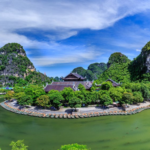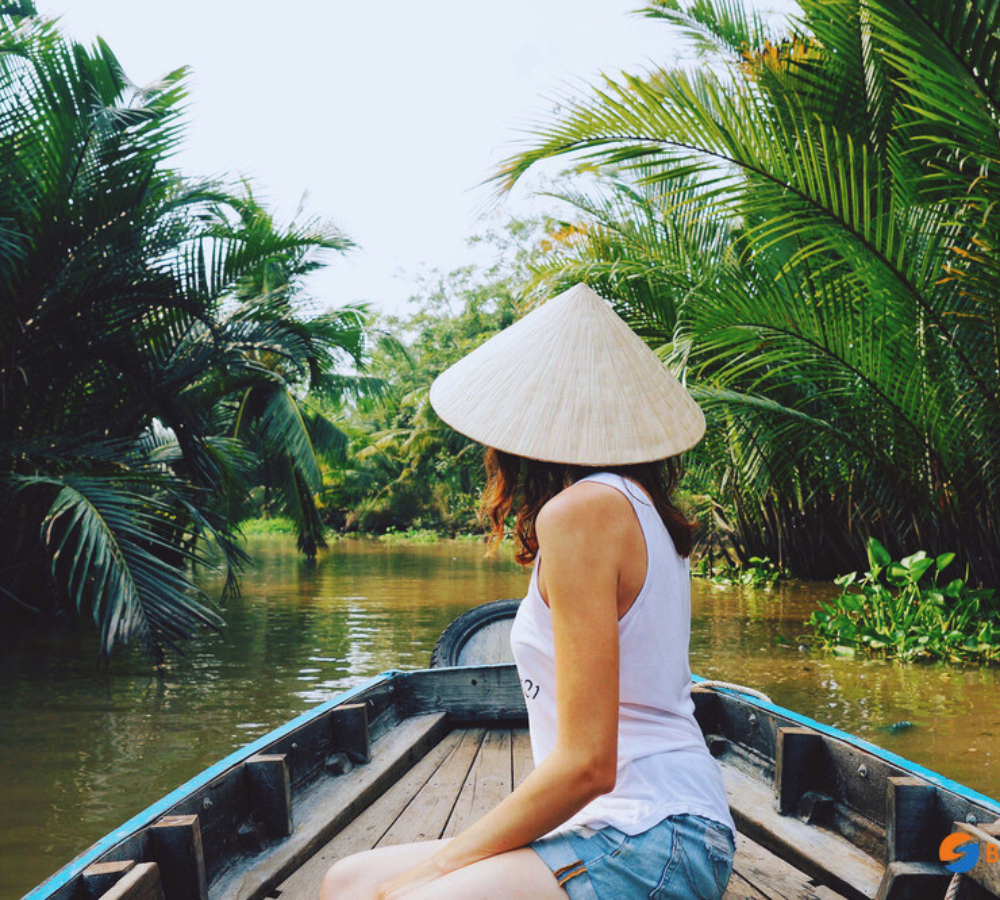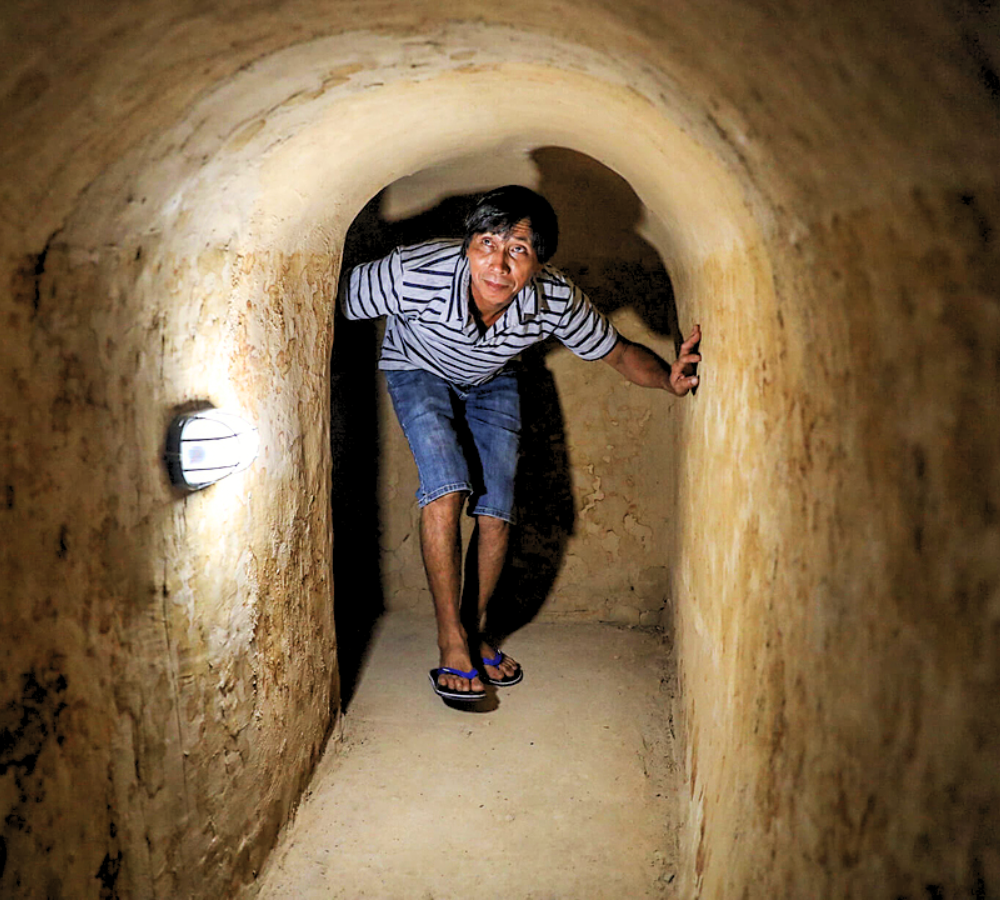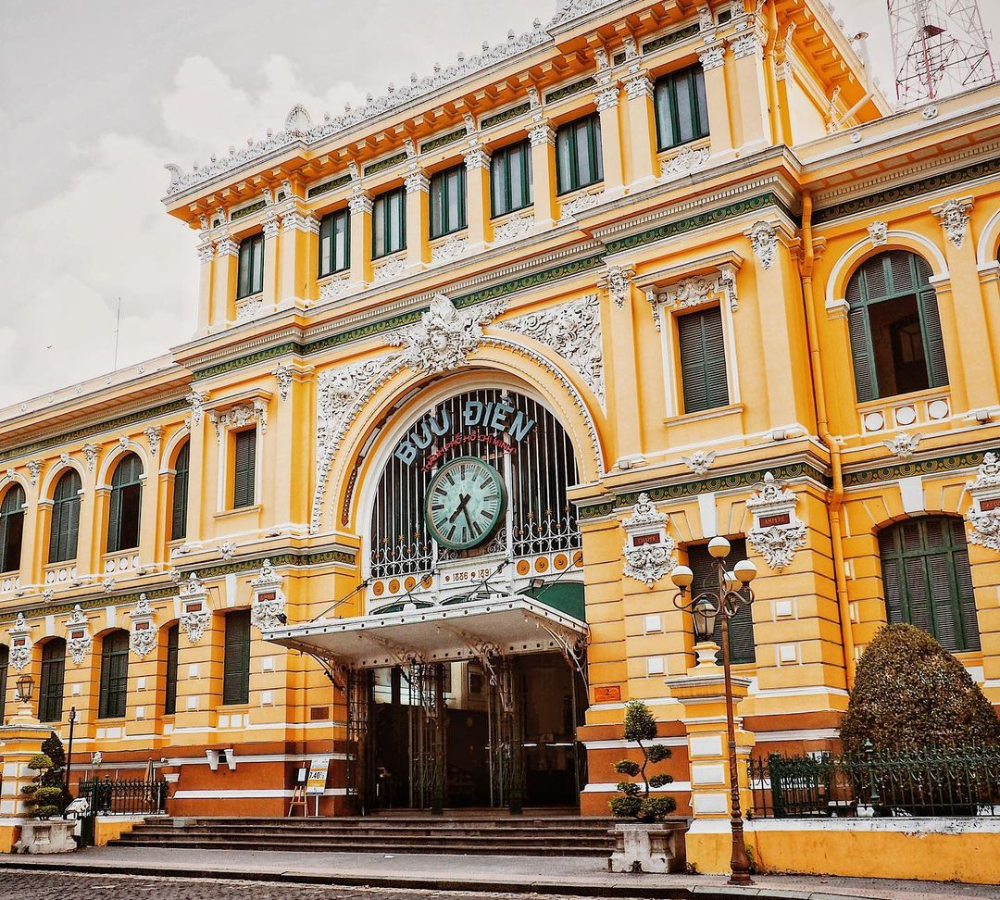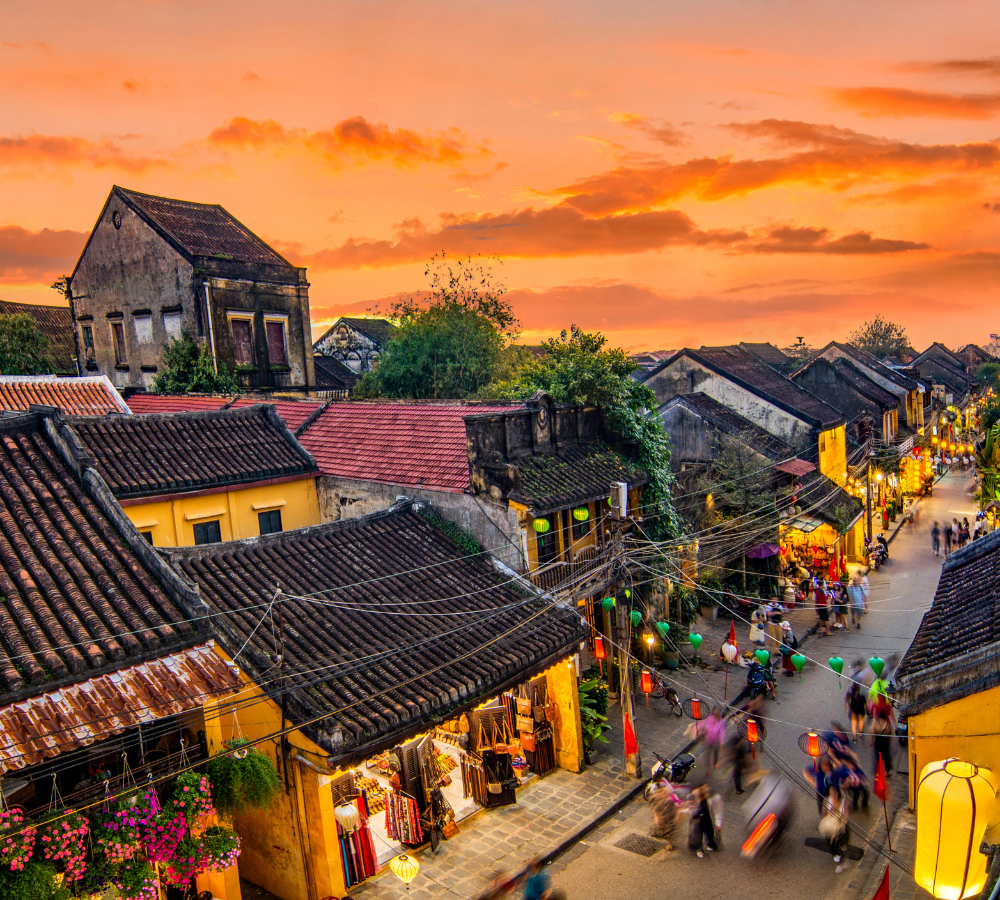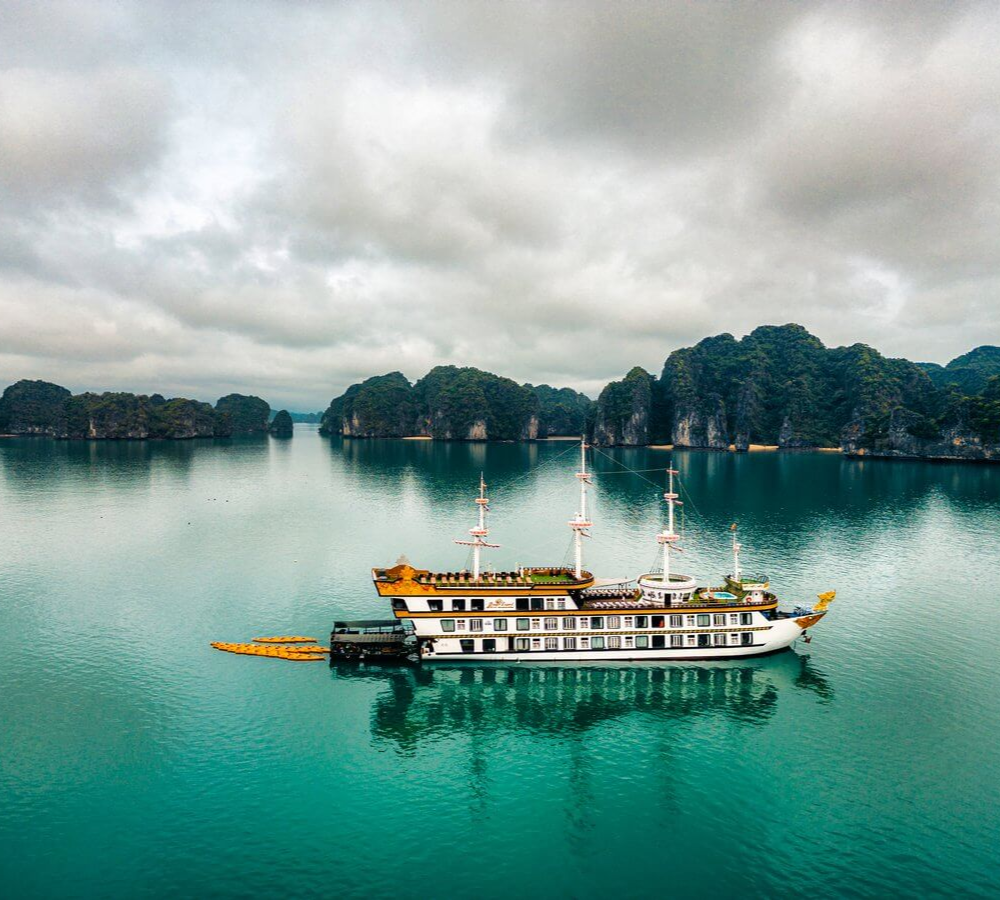The construction of the largest tourism site started nearly ten years ago, on a 450 hectare plot of land, some 40 kilometers from Ho chi Minh City. The Paradise now includes the Dai Nam Van Hien Temple, an entertainment site, zoo, shopping area, hotels, and cuisine sites. The 12.5ha open zoo is part of the 450ha Lac Canh Dai Nam Van Hien Entertainment Complex. The park is home to rhinos, white lions, tigers, elephants, bears, ostriches, chamois, zebras, gnus, squirrel-monkeys, and foxes, many of which are not typically found in Viet Nam.
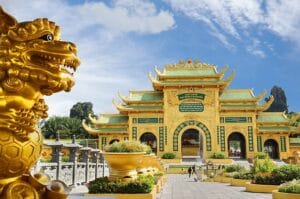
Mr.Tran Dang Trung, manager of the safari park, said that “it had taken two years to develop the open zoo at a cost of VND50 billion. Animals are allowed more space than in a regular zoo while the encounter between humans and animals will also be closer. To protect visitors, deep spaces and various safety methods have been carefully applied.” The Dai Nam Joint-Stock Company has set a goal of attracting two million tourists in 2008-2009 with turnover of VND 300 billion, and in 2010-2013, number of tourists will be up by 30% year on year while the turnover increases by 50%.
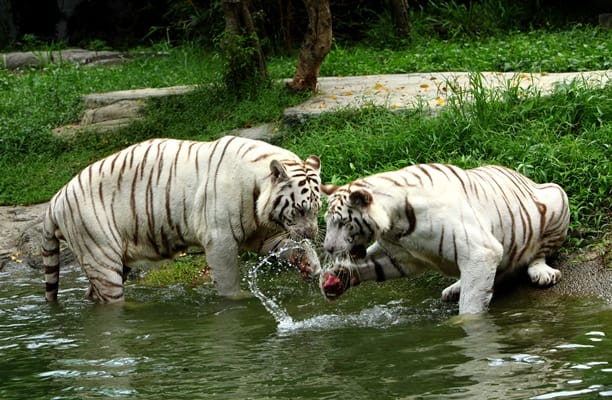
Visting the tourism complex…
Upon arriving at the complex, you first see the Dai Nam Van Hien Temple, one of the most important structures in the park. The temple contains historical exhibits and is used as a place of worship. Exhibits of Vietnam’s various dynasties from Ngo to Nguyen are also on display here. Dai Nam Van Hien is also called Tu An Temple (Temple of Four Gratitudes), a reminder of the origins of the Vietnamese and the people who helped form the country, including the Buddha, the Hung Kings, the Au Co Mother and President Ho Chi Minh. The temple, which can hold about 3,000 people, is decorated with figures of four supernatural creatures – a dragon, unicorn, tortoise and phoenix – and of flowers and plants – lotus, apricots, orchids, daisies and bamboo.
Near the Dai Nam Van Hien Temple lies the artificially created Bao Son Mountain Range and the nine-storey tower, Bao Thap. The five mountains symbolise the five elements of the universe: Kim, Moc, Thuy, Hoa, Tho (Metal, Wood, Water, Fire and Earth). It is believed to be the country’s biggest artificial mountain range. The Bao Son Range is a rough copy of the Ngu Hanh Son Range in the country’s central region. The surfaces of the mountains are planted with many species of plants, flowers and grass. Inside the artificial shell of the mountains are exhibits on Vietnamese history, from the Lac Long Quan and Au Co eras, to the Le Dynasty and the 1975 liberation of South Viet Nam. Depictions of Vietnamese legends such as Banh Day (Round Cake), Banh Chung ( Square Cake ) and the story of the Dua Hau Do (watermelon) are also on display.
The river around the temple was built as a version of the imposing Cuu Long ( Mekong ) River which helped to create the country’s fertile southern delta. Along the river’s two sides are bonsai and flowers as well as recreational facilities that include a circus, trains and a mirrored “laughing house” for children and a roller coaster and water slides. Adults can bathe in a warm water stream or practise tai chi. These recreational zones are separated by yards of grass and small paths lined with colourful flowers.
The northern region of the country is also introduced here, with a replica of Quang Ninh Province’s Ha Long Bay. The artificial bay was created on an area of 180,000sq.m and filled with water and both small and large artificial limestone mountains.
The park, built to international standards, contains man-made lakes, rivers and mountains as well as a wide range of recreational activities that appeal to people of all ages. Replicas of the Eiffel Tower, the Statue of Liberty, Angkor Wat, Thailand’s Golden Pagoda, and the Kremlin are also on display. In the safari park, you can sightsee on an 18th century replica of a sailboat, sunbathe or swim. The zoo was built on an area of 80 hectares with artificial works, containing four main sections that include areas for reptiles, herbivorous animals and carnivorous animals and small animals. You can see rhinoceros, white lions and many other animals not typically found in Viet Nam, such as zebras, gnus, oryxes, squirrel monkeys and foxes.
Deputy Prime Minister Pham Gia Khiem at a recent visit to Binh Duong Province, said, “The park is imbued with the Vietnamese people’s cultural and historical characteristics and can be compared with those in the region and in the world in aspects of size, value, and diversity of tourist services.”
Historic images of Viet Nam’s 64 provinces and cities, replicas of the wonders of the world, a zoo, and a colourful natural space are all on offer in the Dai Nam tourism complex, that is hoped to become a new symbol of culture and tourism…
